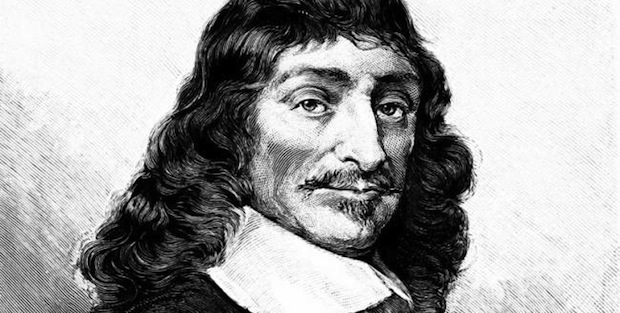Have you ever heard the joke about the two friends, one an engineer and the other a philosopher, talking one day over lunch? The engineer was presenting a design for a new machine he had just invented, demonstrating with one example after another how his creation would revolutionize the world. “Do you mean it will be able to do A and B and C?” asked the philosopher, citing three examples from among the many actions his friend had enthusiastically detailed. “Yes,” replied the engineer. “Well, that sounds great in practice,” enjoined the philosopher, with considerable admiration, “but I do have a question. How will it work in theory?”
“Philosophy as the pinnacle, the completion of knowledge”
I love this yarn for many reasons, not least among which is the way in which it celebrates, with a touch of humor, the life of the mind. Physics is important, it seems to be saying, but metaphysics is essential too. And I have no doubt that our Terminale students would agree, given that all of them spent four hours this past Tuesday morning writing essays for the philosophy component of the French Baccalaureate, just like every generation of future graduates from the Lycée Français has done for the past 77 years. For as many in our educational community will know from personal experience, the “épreuve de philosophie” has been a signature element of the Baccalaureate examinations since the beginning of the nineteenth century.
The fact that it is an obligatory paper for all twelfth grade students, regardless of the track (S, L or ES) or the format (Classical, International Option or French-American) they have chosen, underscores the special place this subject occupies in the French educational tradition. Simon Perrier, President of the “Association des Professeurs de Philosophie de l’Enseignement Public”, explains: “the ambition…when “lycées” were first created, was that philosophy, [taught and examined] in the final year [of high school studies] would be the pinnacle, the completion, the unification of knowledge.”* Or to quote administrative guidelines for this discipline which date back to 1922, philosophy in the school context should be understood as the “the learning of freedom through the exercise of reflection.”**
Must one forget the past to give oneself a future?
Consider the range of questions from which students have been asked to select over the last few years. Over the course of 240 minutes, they could decide to analyze a text from Nietzsche, Aquinas, Durkheim, Rousseau, Hobbes and other major philosophers or to write an essay in answer to one of the following questions: “can art do without rules?”, “must one forget the past to give oneself a future?”, “is it absurd to desire the impossible?”, “does feeling injustice teach me what is just?” and “is it easier to know others than it is to know oneself?”
The knowledge of philosophy which our students gain during the twelfth grade class they take to prepare for this challenging examination is extraordinary and I would dare say contributes to making them among the most cultivated young people to be found at any excellent university around the globe. Yet the capacity for critical thinking which this learning experience nurtures is an even more invaluable asset for the future. The “épreuve de philosophie” marks their passage into the realm of structured, intricate, independent thought, so that while they reinvent the world around them, like the engineers in the joke above, they are able to do so with a vision which is truly their own. Long live philosophy at the LFNY!
*“L’ambition au XIXe siècle, à la création des lycées, était que la philosophie, en dernière année, soit l’achèvement, la clôture, l’unification du savoir” (quoted in Slate.fr).
**“l’apprentissage de la liberté par l’exercice de la réflexion” (see the above source).
NB. The Latin phrase “cogito, ergo sum,” which in English means “I think, therefore I am”, was employed by French philosopher René Descartes in his Discours de la méthode (1637).
About the Author :
Sean Lynch was Head of School at the Lycée Français de New York from 2011 to 2018, after having spent 15 years at another French bilingual school outside of Paris: the Lycée International de St. Germain-en-Laye. Holding both French and American nationalities, educated in France (Sciences Po Paris) and the United States (Yale), and as the proud husband of a French-American spouse and father of two French-American daughters, Sean Lynch has spent his entire professional and personal life at the junction between the languages, cultures and educational systems of France and the United States. In addition to being passionate about education, he loves everything related to the mountains, particularly the Parc National du Mercantour.

